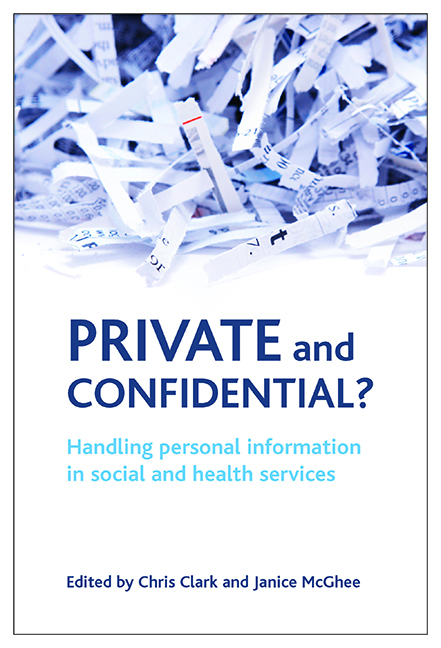four - Ethical practice in joined-up working
Published online by Cambridge University Press: 21 January 2022
Summary
An approach from practice
In this chapter the approach will be to work from the actual needs of practice to agreed ethical policy and procedures. Here we seek to follow Aristotle's advice to proceed a posteriori rather than a priori in our exploration of the issues involved in handling personal information. Aristotle argued that ethics is a practical science, intimately connected with law and politics, and that these form part of the same continuum – embracing in one frame the personal, communal and sociopolitical aspects of our sharing of power and responsibility in any moral community. Aristotle's approach is in a broad sense empirical and proceeds from practical experience towards the formulation of decision procedures and evaluative criteria. He emphasises the crucial role of ‘prudence’ in practical decision making, requiring not only knowledge of ethical principles, but also skills based on practical experience and the development of standard policies and rules through the exercise of actual public accountability (Thomson, 1976).
The focus in this chapter will be on the kind of policy and procedures that are needed to deal with issues of confidentiality and privacy in professional practice, and the practical requirements for responsible institutional management of personal information. I will examine and compare two cases where I have been directly involved as a research consultant. The first example is from Western Australia, where inadvertent disclosure of personal health information in the press provoked calls for the Minister of Health to resign and necessitated the development of policy and procedures to deal with the ensuing crisis. The second relates to developing a youth justice strategy within the Integrated Children's Services Plan for the Outer Hebrides. This task was undertaken in the context of intense media interest over the arrest of 13 adults and nine people charged with child abuse, followed by a surprising decision by the Crown not to proceed with the case. There were also local concerns over community safety, with an ageing population feeling threatened by the antisocial behaviour of a small group of young people.
The emphasis here will be on ethics as a practical discipline that requires training and the acquisition of skills in values clarification and ethical decision making; it needs to be based on practical experience rather than abstract moral theorising.
- Type
- Chapter
- Information
- Private and Confidential?Handling Personal Information in the Social and Health Services, pp. 63 - 82Publisher: Bristol University PressPrint publication year: 2008

